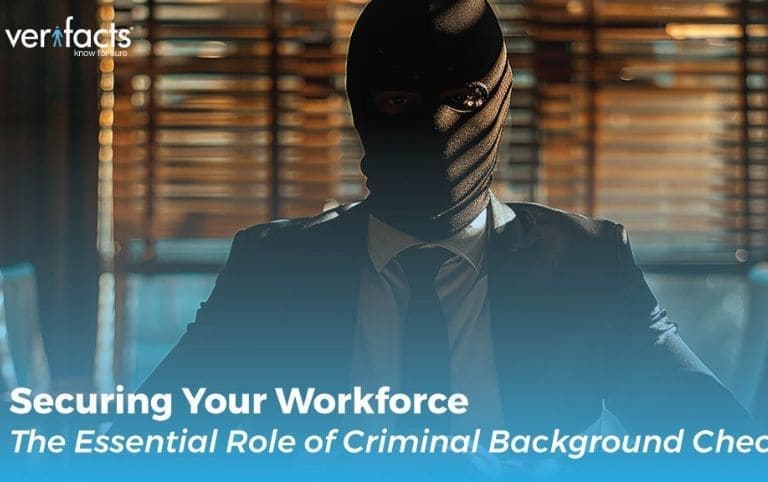
In today’s fast-paced hiring environment, organizations must fill vacancies quickly due to promotions, attrition, or expansion. But speed should never come at the cost of safety and integrity. Seemingly trustworthy candidates can sometimes hide fraudulent, violent, or unethical histories, posing serious threats to business continuity, brand reputation, and employee well-being.
This is why criminal background checks are not just an HR formality, but a strategic safeguard for long-term stability and workplace safety.
1️⃣ Court Records ⚖️
-
Screening criminal and civil court records reveals whether a candidate is facing active charges, convictions, or legal disputes.
-
This insight helps hiring managers evaluate potential legal risks and ensure compliance with industry regulations.
-
For sensitive positions in finance, legal, or government projects, this step is absolutely non-negotiable.
2️⃣ Crime Watch Lists 👮
-
Running candidate details through national and international watchlists can expose links to terrorism, fraud, or organized crime.
-
This acts as an early-warning system, alerting companies to investigate further before finalizing an offer.
-
Particularly important for industries like banking, aviation, and security services, where risk exposure is high.
3️⃣ Credit Defaults 💳
-
Financial integrity is critical, especially for roles handling company or client funds.
-
Candidates with heavy debts, defaults, or poor credit history may pose risks of embezzlement or fraud.
-
A thorough check helps ensure financial roles are entrusted only to responsible and reliable professionals.
4️⃣ Reputational Risks 🌐
-
Criminal checks often uncover patterns of unethical behavior or associations with questionable organizations.
-
Even without criminal convictions, reputational red flags can damage the company’s brand value and client trust.
-
Maintaining a clean, ethical workforce is essential in today’s transparent, reputation-driven marketplace.
5️⃣ Civil Litigation 📑
-
A candidate may not have a criminal record but could be involved in ongoing civil disputes, such as fraud cases, contract breaches, or workplace misconduct.
-
These cases, if undiscovered, can impact organizational credibility and create operational challenges.
-
Comprehensive checks provide clarity and ensure that risks are visible before hiring decisions are made.
Conducting criminal checks across all candidates can be resource-intensive:
-
🔍 Manual checks often lead to delays and inconsistencies.
-
💻 Leveraging technology enables faster database searches across multiple jurisdictions.
-
📈 However, it requires investments in tools, training, and compliance frameworks.
To strike a balance between thoroughness and efficiency, many companies choose to outsource their background verification to professional service providers.
✅ Advantages of outsourcing include:
-
🚀 Speed & Efficiency → Faster turnaround through access to vast legal and criminal databases.
-
🔒 Accuracy & Consistency → Standardized processes reduce human error and bias.
-
💼 Cost-Effective → Reduces the need for internal HR teams to spend excessive time on verifications.
-
📊 Specialized Expertise → Providers like Verifacts bring domain knowledge and access to Indian Civil & Criminal Litigation records.
-
🧘 Peace of Mind → HR teams can focus on strategic tasks, while businesses remain confident that every candidate has been vetted rigorously.
In today’s competitive and compliance-driven environment, criminal background checks are no longer optional—they are essential. By carefully screening court records, watchlists, financial integrity, reputational risks, and civil litigation history, organizations can:
-
🛡️ Protect against fraud and misconduct
-
⚖️ Ensure legal and regulatory compliance
-
🌟 Safeguard brand reputation
-
👥 Provide a secure workplace for employees
Outsourcing these checks to trusted partners ensures that the process is efficient, reliable, and future-proof. Ultimately, criminal background verification is not just about preventing risks—it’s about building a trustworthy, ethical, and resilient workforce.

